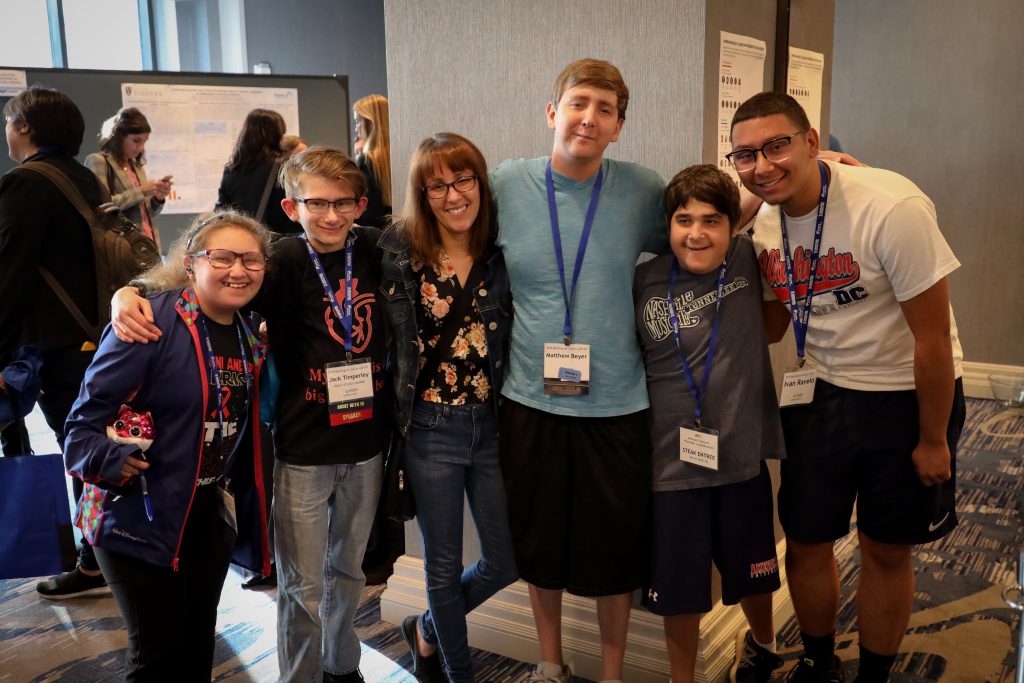We are excited to fund four new research projects, two targeting the blood problems in Fanconi anemia, and two focusing on understanding cancer in FA.
Read about each project:
Investigator: Agata Smogorzewska, MD, PhD
Institution:The Rockefeller University, New York City, New York
Title: Identification of Novel Therapeutic Targets against Fanconi Anemia-associated Squamous Cell Carcinoma
Amount Funded: $120,000
Project Summary: Fanconi anemia patients are dramatically predisposed to early-onset and aggressive head, neck, and anogenital squamous cell carcinoma (SCC). Treating Fanconi SCCs is challenging due to high-frequency recurrence and patient chemosensitivity, yielding an average survival rate of <2 years post-diagnosis. New treatment strategies are desperately needed. We want to tackle this problem by identifying ways to kill cancer cells but spare the other cells in FA patients. We will build cell lines that mimic patient cancers and use them to identify their vulnerabilities (“Achilles heel”) which would lead to development of better therapeutics.
Investigator: Raymond Monnat Jr., MD
Institution:University of Washington, Seattle, Washington
Title: The Fanconi Anemia Cancer Translational Resource
Amount Funded: $174,987
Project Summary: Fanconi anemia (FA) patients are at exceptionally high risk of developing epithelial cancers. We aim to identify features of these cancers that provide new insight into their origins, and better ways to treat these cancers in the context of FA patients. As part of this Resource we will develop and characterize FA-deficient and control cancer cell lines to use to test new cancer therapies for FA patients. All data will be freely available, and cell resources available via public cell repositories to enable FA translational research.
Investigator: Kevin G. Haworth, PhD and Hans-Peter Kiem, MD
Institution:Fred Hutchinson Cancer Research Center, Seattle, Washington
Title: Direct in vivo gene correction of hematopoietic stem cell populations in Fanconi anemia
Amount Funded: $175,000
Project Summary: Fanconi Anemia (FA) is characterized by fragile bone marrow and the inability to repair DNA damage which accumulates in repopulating stem cells, leading to marrow failure. Current treatments often involve bone marrow transplantation however the majority of patients will not have an appropriately matched sibling donor and transplants from alternative donors are still associated with substantial toxicity and morbidity. Alternatively, new gene therapy approaches are being tested in the clinic which aim to introduce a corrected form of the mutated gene through collection and modification of the patients own stem cells in a sterile tissue culture facility. While this method has shown early potential, there remains significant risk for additional DNA damage to occur while the cells are cultured outside the body. Additionally, performing stem cell isolations on FA patient marrow has proven challenging due to altered expression of CD34, the main surface marker for stem cells.
Investigator: Agnieszka Czechowicz, MD, PhD
Institution:Stanford University, Stanford, California
Title: Development of a safe, completely non-genotoxic anti-Kit antibody-based conditioning regimen for hematopoietic stem cell transplantation in Fanconi Anemia
Amount Funded: $180,000
Project Summary: Bone marrow transplantation has been used for 60+ years to treat >1,000,000 patients suffering from many types of blood or immune diseases, and this therapy is the best current treatment for FA patients experiencing blood problems. This procedure relies on replacing sick blood-forming stem cells in patients with healthy ones from a donor, resulting in a completely new blood system. However, this currently requires use of irradiation and/or chemotherapy which can be extremely harmful, especially to FA patients whose cells cannot fix DNA mistakes caused by these agents. We think we can make this procedure safe and eliminate all of the bad side effects through use of antibodies that can target specific cells of the body, and together allow safe turnover of the bone marrow and eliminate bone marrow disease in FA patients. This type of therapy could not only be used to treat blood problems in FA patients, but also prevent them all together if used upfront in recently diagnosed patients.




